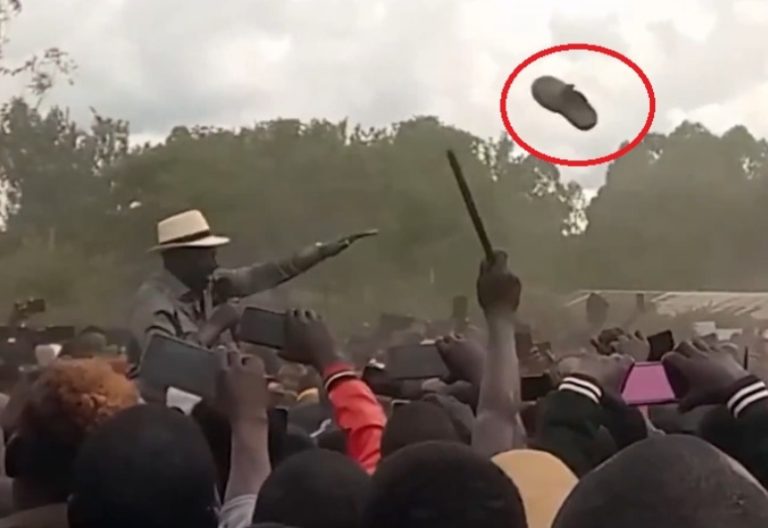Migori leaders better heed message in flying shoe

The recent incident in Migori County in which a shoe was thrown at President William Ruto has been interpreted by many as a powerful symbol of public discontent. While Kenya Kwanza officials attempted to downplay the event as accidental, the act itself – throwing a dusty shoe at the President, a symbol of national unity – carries deep symbolism. Shoes, used daily by ordinary Kenyans, have become tools of protest, representing the public’s exhaustion and frustration with the regime.
Throwing shoes at political figures has become a universal gesture of insult. When Iraqi journalist Muntadhar al-Zaidi threw his shoes at U.S. President George W. Bush in 2008, it symbolised rejection of occupation and perceived hypocrisy.
In Kenya, this symbolic act illustrates a public sentiment that has moved from vocal dissent to physical expression, a significant escalation in civil protest. Coming two years before the next general election, this is an unfortunate situation that must not be allowed to escalate. While the shift in dissent reveals a population in deep distress, feeling ignored and alienated by their government, it must be noted that only a few have shown the courage to get to such extremes.
While such acts shouldn’t be encouraged in our democracy, responsibility lies with our leaders to address people’s grievances. The protest gains additional significance having occurred in Migori, traditionally a stronghold of Raila Odinga. Despite its ethnic diversity, including the presence of the Kuria community, some of us Migorians are now blamed for disrespect and critics aver that Migori’s symbolic rejection of both Ruto and Baba points to a political realignment in traditional bastions of support.
As a native of Migori, visiting the region as I write this, I was initially thrilled about the President’s visit to my alma mater, Kadika Primary School. While his promises were welcomed, complaints abound throughout Suna East and Suna West. Walking down the streets of the two areas, I listened to many complaints that would come back to bite if nothing comes out of the Migori tour. Many roads, including in places close to the county’s seat of power, are in bad shape. Not very far from the governor’s office, on the way to Nyikendo and Nyarongi, the road has been in poor shape for some time, and the President was in that area.
I believe the shoe incident occurred partly because leaders surrounding the President have promised road improvements for 15 years without delivery. Their presence during yet more promises likely angered citizens who associate this regime with empty words. Migorians suffer from promise fatigue.
Many young degree holders here have nothing better than riding boda bodas or following leaders for handouts, some for nearly 20 years with the same unchanged leadership. They are realising that programmes intended to address development challenges haven’t improved their lives.
As a native of Suna East, I condemn such disrespect toward the President. However, to Migori’s leaders: the frustration is palpable, and voters are tired of unfulfilled promises. The word on the street is that those who haven’t delivered will be sent home.
The writer is a media studies Researcher















